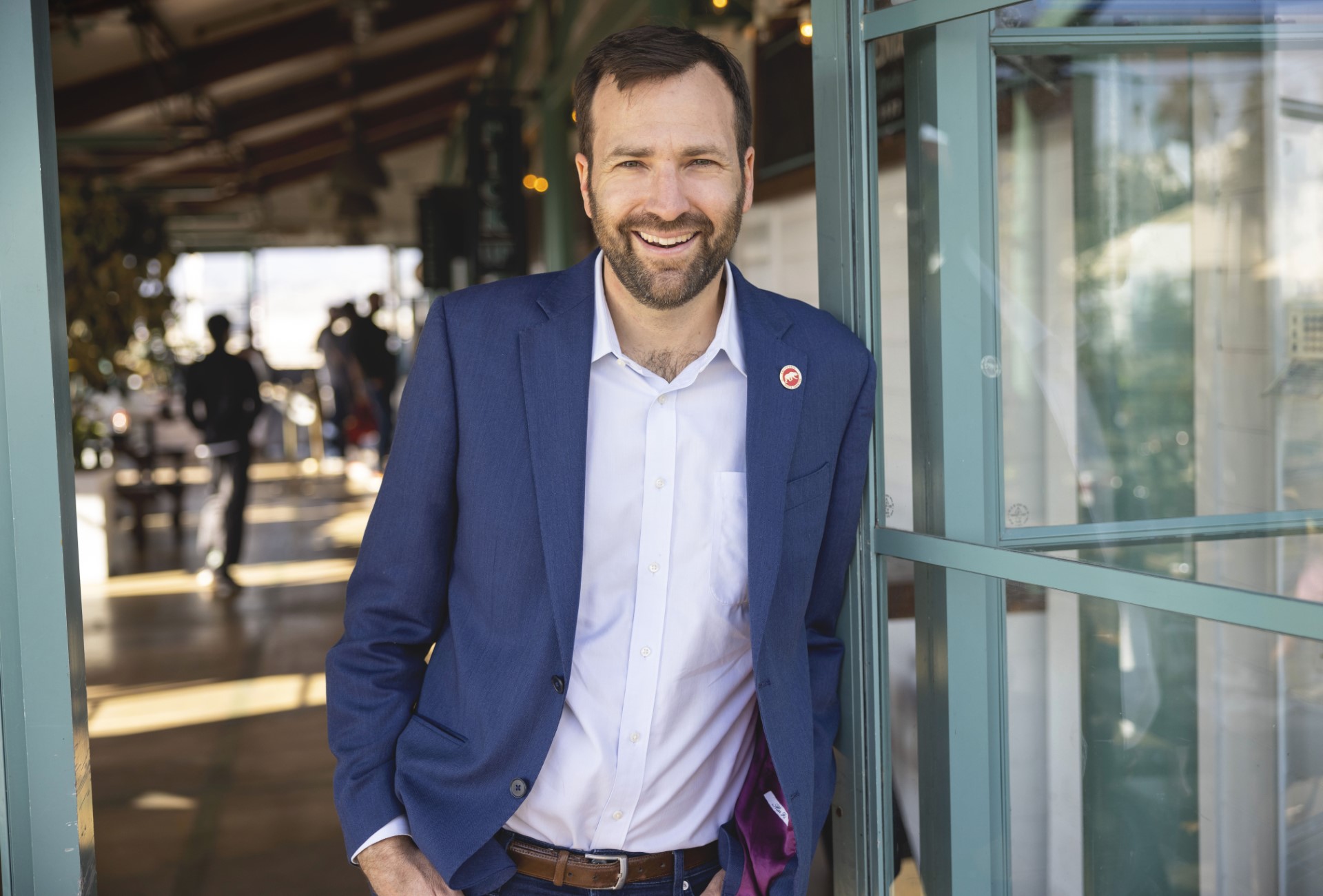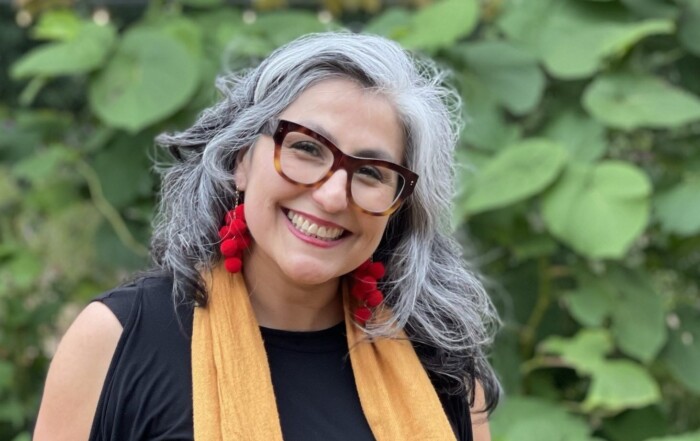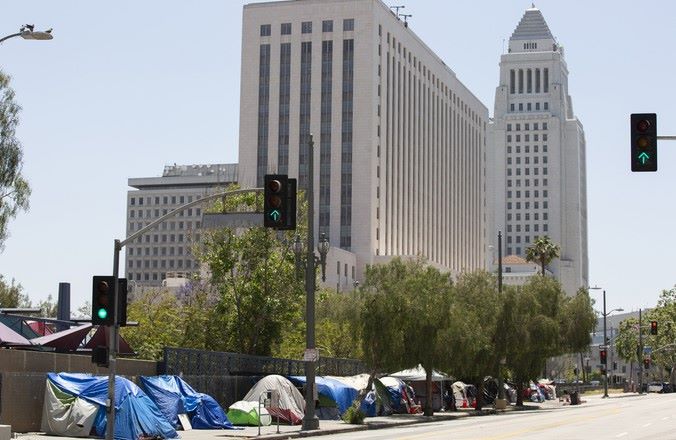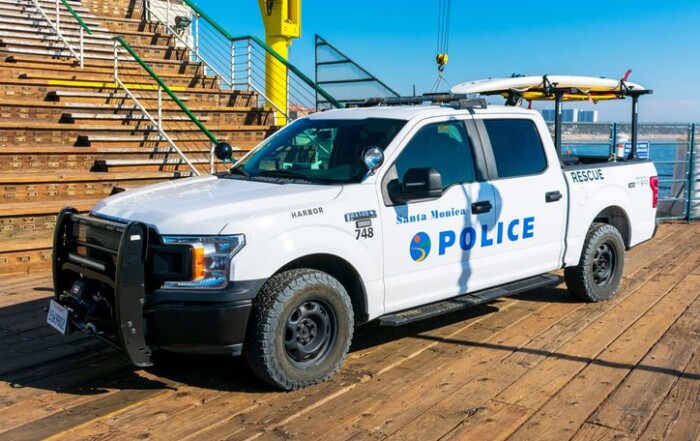Ben Allen is a California State Senator who represents the 24th Senate District, which includes a good many of us here on the Westside as well as those in the South Bay. He is a Democrat who was first elected in 2014 after serving six years on the School Board of the Santa Monica-Malibu Unified School District. Allen is a graduate of Santa Monica High School and holds a law degree from UC Berkeley.
Allen is a strong advocate for public education, healthcare, and environmental protection. He is also a strong supporter of civil rights and social justice. He is considered a rising star in the California Democratic Party and a potential candidate for statewide office in the future.
I met and interviewed the Senator for the first time over Zoom last week. The following is a transcript of our conversation.
Noor Sufi (NS): If you had to name two pieces of legislation you wrote or championed that you are proudest of, what would they be?
Senator Ben Allen (BA): We’ve got Senate Bill (SB) 54 which is a bill that creates a system for accountability for producers of single-use plastics. So, we’re getting them to play a role in finding an end use for their products. That took a lot of work, it was an intense negotiation, and was the strongest plastics bill in the country, so we can already see that it is spurring investment in all sorts of innovation. New companies are getting investment dollars to help the next generation produce more environmentally sustainable packaging products, so it’s been gratifying to see how much economic activity for more environmentally friendly products has grown out of the bill and we know it’s going to make a huge difference long-term.
NS: Given the strength of the Democratic majority, do you ever need to even try to work with Republicans to advance your legislative agenda, and if you do, how are you effective in finding common ground?
BA: It’s always best to try to engage with all the colleagues. There are certain times where if we get Republican support, it makes it harder for some Democrats who might otherwise oppose the bill. Getting Republican support has proven to be useful in coalition building. At the end of the day, it’s about treating people with respect, reaching out, ensuring that you take everybody seriously, and quite frankly I don’t always agree with everybody, sometimes I even disagree with decisions I’ve made a while back. It’s complicated work, but what I will say is we do seem to be much more collegial over here than in Congress where they are at each other’s throats all the time.
NS: As a member of the California Senate environmental quality committee, I see that you authored SB 709 in hopes of reaching your climate goals. Can you tell our readers about that bill and where it stands?
BA: This bill relates to the Low Carbon Fuel Standard (LCFS) and ensures that dairies, which have a vital role to play in reducing climate pollutants, are upholding the spirit of the original law. We want to make sure that the LCFS system is not inappropriately incentivizing harmful behavior. We want to make sure that it is accurately calibrating and calculating pollutants and the climate impact of certain types of industrial activity, particularly in the dairy industry. Due to a lot of pushback from the agricultural industry, dairies, and certain gas companies, the bill has been changed to a two-year bill. This means that negotiations will take place over the next year in an attempt to reach mutually agreeable solutions. The bill was discussed in the Revenue Quality Committee, and the discussion was very lively. We are not pushing the bill right now. But we’ve been on a two-year bill which means we have to move it in January. So we have some time now. We heard a lot of pushback from industry. And so it’s going to involve a lot of work. But it’s ultimately all about making sure that the low carbon fuel standard is really living up to its original promise.
NS: You have been a steadfast supporter of workforce development and education. What are the biggest difficulties you believe the educational system in California is now facing?
BA: Well, the most obvious is the pandemic that really impacted our kids’ learning. Students really struggled, and there is a lot of data science now coming out to suggest that a lot of our students really lost ground through the pandemic. So the great challenge now is, how do we ensure that we know how to give our kids the tools they need to really get up to speed? We’re also dealing with the downturn and making sure we have the resources for the schools that they need. I would say that that’s the greatest kind of current challenge that we face in the world of education.
NS: A string of disastrous wildfires have impacted California. You authored senate bill 867 to offer critical investments that expand on the $10 billion allocated in prior state budgets. But do you think the federal government ought to provide assistance to California to help it prepare for and respond to natural disasters, and what actions have you taken to address this issue?
BA: Bill 867 is an attempt to try to make sure we get the resources that we need here within the state of California, but there is no question that California is an incredibly important economic powerhouse. This crisis is economic climate-driven in the same way that the federal government steps in to help a lot of our fellow states with all sorts of natural disasters because we need their help on fire. There’s been some assistance, but you know it certainly should be more, and I’ve been a part of a coalition of legislators that have been asking the federal government for more engagement, more support, and more resources. At the same time, we are also working on ensuring that we’re able to match those resources here locally, or within the state, and that’s what 67 is all about.
NS: You are a well-known advocate for criminal justice reform. What steps do you think should be taken in California to lessen incarceration rates overall and enhance the lives of those who have already served time in prison?
BA: Jails have gotten incredibly expensive. As of now, a portion of our budget is going toward prisons, and I think we are at a point where we were spending more on the prisons than on the entire Universities of California. We finally flipped that back to where it should be. We need to keep our streets safe. We are not necessarily clogging the jail cells with folks that don’t pose a risk. I mean, so many prisoners for a long time were there for drug crimes including personal use, and that just seemed like a crazy way for us to be spending our resources because there are other ways to deal with the drug use challenge.
NS: California faces a serious housing affordability problem, and gentrification is affecting many neighborhoods in L.A. leading to displacement of long-term residents. What measures do you think can be taken to ensure that low-income residents can stay in their neighborhoods and avoid being pushed out by rising residents and property values?
BA: You’ve got folks like [State Senator] Scott Wiener, who have been out there pushing for more buildings, more densification upzoning. Some of his proposals have been met with a lot of pushback from folks who are concerned about gentrification because they see those efforts opening the door for higher-end development that ends up pressing out lower-income people. He’s certainly starting to work more in that direction, and I’ve got a bill on this too right now that seeks to make it easier for affordable housing developers. One of the things we’re doing right now is we’ve got a measure on the ballot that is reforming Article 34 which was part of the constitution that has made it harder for low-income housing to be built. One of the things that I’ve always been focused on is really trying to strike that balance and continue to give local elected officials tools. It shouldn’t always be top-down mandates from Sacramento. We should be working with the local government to come up with ways to address the local needs, within a local context.
NS: You’ve now been a dad for a few years. How do you approach life as a legislator differently as a father, if differently at all?
BA: There are two ways to answer this question. One is just the logistics. It’s really made my life a little more complicated. Before I had a son, I had a lot more flexibility in terms of my time, I really value the time we spend together. We try to make sure we have more time together as a family, and so that means I’m not attending as many events. It’s a lot of work, but it’s also a lot of fun. Having a kid definitely gives you a kind of stake in the future. It feels different than before. I will say when there are tragedies like gun violence, my heart always broke for families after every one of the far too frequent gun tragedies that we’ve seen before. But, now it hits me so much harder. The emotional investment you put into little kids, and then to have someone just take that from you because they are having a bad day, and they had access to weapons. It’s just mind-blowing. These stories hit me a little harder now that I am a father.
NS: It must hurt both because you’re hurting as a senator and as a dad because you’re thinking of all those families
BA: Yes, it motivates me to think about the planet we are passing on to the next generation. I want to do my part to mitigate the impacts of climate change, pollution, and other environmental issues. I want to help preserve this precious planet for future generations.
NS: I want to extend my condolences on behalf of Westside Voice for the recent loss of your own father. What are the most consequential things you learned from him?
BA: He was a huge part of my life. He was someone who studied and engaged in very sophisticated work. He was a professor of complicated questions of philosophy and intellectual history. Yet, he always focused on trying to make the study of the past, and ideas of the past, accessible to people. There was this wonderful mix of sophistication, and accessibility that imbued every interaction he had with people. A lot of my love for the environment and the outdoors that we talked about came from my father. He instilled a deep love for the hikes in the Santa Monica mountains. My father loved watching the senate proceedings, he would come up here [Sacramento] and translate all the Latin.
NS: Thank you very much for your time.
Photo provided by the Senator’s Office
Stay informed. Sign up for The Westside Voice Newsletter
By clicking submit, you agree to share your email address with Westside Voice. We do not sell or share your information with anyone.








